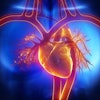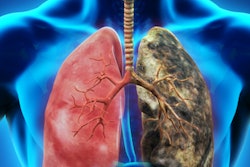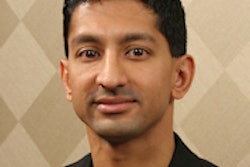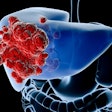The American College of Radiology (ACR) and RSNA on October 10 issued a joint statement supporting lung cancer screening within current U.S. Preventive Services Task Force (USPSTF) guidelines.
Issued in July 2013, the USPSTF guidelines recommend lung cancer screening for high-risk individuals ages 55 to 79 who have a minimum 30-pack-year history of smoking. While the guidelines gave a major boost to CT lung cancer screening, some screening proponents argued that they don't go far enough in including other patient populations who might be at higher risk for lung cancer.
In their joint statement, RSNA and ACR declined to recommend screening for other risk groups outside the USPSTF criteria, saying there isn't enough evidence to support CT scans for people at low or moderate risk of the disease. These groups include younger individuals, those with shorter smoking histories, or those with significant exposure to secondhand smoke or other cancer-causing substances.
RSNA and ACR also said they look forward to working with the U.S. Department of Health and Human Services, the U.S. National Cancer Institute, Congress, and other stakeholders in taking the necessary steps to create a "sustainable and effective" lung cancer screening process. Both organizations also promised to continue developing educational materials for patients.
Lung cancer is the leading cause of cancer death in both men and women, resulting in about 160,000 deaths every year in the U.S. The goal of CT screening is to detect lung cancer in its early, curable stages.
The two organizations jointly advised smokers to quit and recommended that people who are at high risk for lung cancer, particularly older, heavy smokers, speak with their doctors to determine if lung cancer screening with CT is appropriate for them.



















